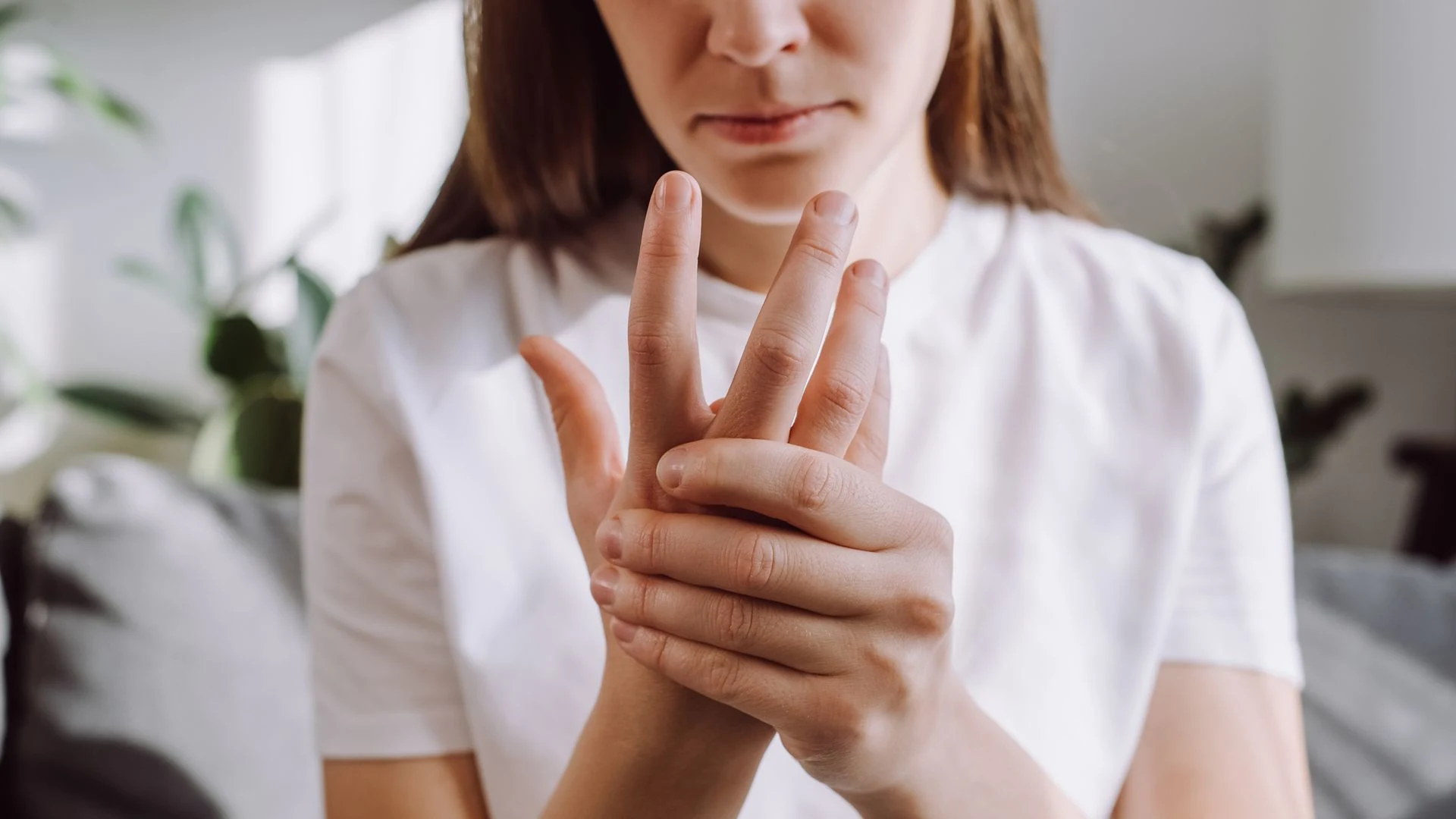Copyright hellomagazine

Have you ever felt a tingling in your hands as if you had a thousand ants marching underneath your skin? It might seem like a minor nuisance, but that pins and needles feeling could be a warning sign of health issues, from something as harmless as a bad sleeping position to more serious ailments. That's why it's important to look for the possible causes, what symptoms you might be feeling and most importantly, what to do about it. "Tingling in the hands - the medical term is paraesthesia - is one of the most frequent symptoms we evaluate in my clinic," says neurologist Dr Víctor Gómez Mayordomo. Why are my hands tingling? The brain expert explains that from a clinical point of view, the causes of tingling hands can be quite varied: Nerve compression (entrapment). The most common is carpal tunnel, where the median nerve is literally squeezed at the wrist; entrapments can also occur higher up in the elbow (cubital neuropathy) or in the neck (cervical radiculopathy). Metabolic diseases such as diabetes, which can progressively damage the protective sheath of the nerves. Nutritional deficiencies, especially of B vitamins including B1, B6, B9 or B12. Exposure to toxins (alcohol, certain drugs, heavy metals, chemotherapy) can also cause damage to nerves. What does tingling in the hands feel like? The doctor explains that you might feel a sensation of ants crawling on your skin, pins and needles, light tingling or numbness. "In cases of nerve entrapment, these symptoms are often experienced at night, caused by your sleeping position. The main thing you’ll notice is that the feeling is temporary - when you move your hands, the symptoms pass in a few minutes," he says. If the compression is more pronounced, sensory symptoms may be more frequent or even constant during the day, and you might even feel pain or a burning sensation in your palms. "If it's a more severe nerve compression issue, you might note clumsiness or weakness in your hands - for example, accidentally dropping objects or having difficulty buttoning your shirt." Who is at risk? Are there circumstances that make someone more prone to hand tingling? "Certain people have a higher risk of nerve compression: people who perform repetitive movements with their wrists (handling tools, typing for hours); people with increased fatty tissue or fluid retention (hypothyroidism, pregnancy) and people suffering from nerve damage or neuropathy (diabetes, vitamin/nutritional deficiencies)." Older people, too, are at risk because their joints are more susceptible to nerve entrapment. When to worry about tingling hands When a person feels tingling that resolves in minutes by changing posture, especially at night, it is usually due to mild compressions. "In most cases, these symptoms resolve spontaneously in days or a week. However, if they persist, it's important to undergo a medical evaluation. Other signs that indicate you need to see a doctor are a loss of dexterity in the hand, weakness, muscle atrophy or intense pain," he suggests. What can I do to stop my hands from tingling? The first thing to do is try to avoid factors that seem to make the feeling worse: forced positions or keeping your wrists bent for a long time, for example, when typing or holding tools. Also, be sure to take breaks to rest your hands. "Other useful techniques include performing gentle wrist and neck stretches, adjusting your keyboard height and varying your activities [to put less strain on your hands and wrists]. If after a few days of self-care, the tingling doesn't improve, or if you notice more serious symptoms, it's time to see a doctor," he says. As far as treatments, the solution will depend on the cause. "If we're talking about mild carpal tunnel, a splint that keeps your wrist in a neutral position at night while you sleep usually resolves symptoms in weeks. When the compression is more severe, your doctor may consider surgery to release the entrapment." In the case of diabetic neuropathy, Dr.Gómez Mayordomo explains that management involves two key steps: Controlling blood glucose: Keeping blood sugar levels in a healthy range. Medication: Specific pharmaceutical treatments are often needed to manage the neuropathic pain. Lastly, if a vitamin deficiency is found to be the cause, taking a simple oral supplement in the early stages can usually reverse the symptoms. What vitamin deficiencies can cause tingling hands? Numbness or pins and needles in the hands can be a sign of a possible lack of nutrients in your diet. "Neuropathies can occur in people with nutritional deficiencies, for example due to strict diets, excessive alcohol consumption or intestinal malabsorption. Occasionally, a blood test might reveal you have low levels of B vitamins - especially B9 and B12 - which are key nutrients for nerve health," the doctor details. Can anxiety cause hand numbness? Most causes of hand tingling are physical but it can also be a symptom of a psychological issue. "Anxiety can trigger paraesthesia in hands, lips or limbs when you hyperventilate," says the neurologist. "The tingling is usually accompanied by palpitations, dizziness or a feeling of shortness of breath. It eventually subsides when you're able to breathe calmly again." Your hands "freezing" or tingling doesn't mean your nerves are damaged. Instead, this is a functional symptom: a genuine physical sensation that doesn't show up on medical tests like imaging or nerve conduction studies. "These conditions are caused by a disconnect in how the brain processes sensory information; they're often triggered by stress, anxiety, diagnostic uncertainty or other psychological factors," he explains. "In these cases, treatment focuses on retraining the brain through techniques like cognitive-behavioral therapy (CBT) and specialised physiotherapy. The goal is to manage stress and retrain the brain, rather than using drugs or surgery to address a physical problem with the nerve." About the expert: Dr Víctor Gómez Mayordomo is Deputy Director and Specialist in Neurology at the Institute of Neurosciences at Vithas La Milagrosa University Hospital in Madrid, Spain.



